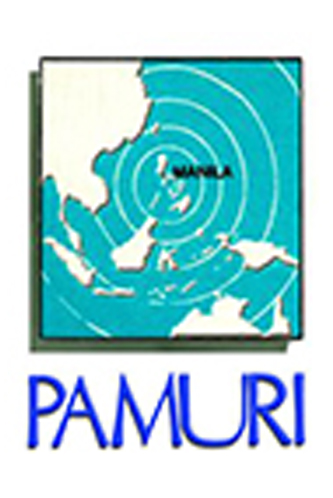Recommendations (Agribusiness)
Headline Recommendations
- Multiple new FTAs present great opportunity for RP agricultural exports. The farming sector should be made aware of these opportunities, as well as threats from imports, so the sector can adjust. Lowering cost of farm inputs – through improved infrastructure, lower ground and sea transport costs, less government red tape, cheaper fertilizer and insecticides – become even more essential. R&D, agricultural education, and training need ramping up.
- Agribusiness must update old models and develop new ones. By linking small foreign and domestic) are proving the RP can compete. The Philippine Agribusiness Center of DA should expand its export development projects.
- CARP should end in five years and limits on landholding lifted. The Farm Land as Collateral law should be passed, and the mandated lending policy in the Agri-Agra law should be made optional.
Recommendations (18)
A. Philippine agriculture needs to explore fully the immense new market opportunities that AFTA and other new FTAs present for both traditional and new agricultural exports. The farming sector should be made more aware of these enhanced export opportunities, as well as the principal threats from imports, so the sector can better adjust to increased competition. (Immediate action DA and private sector)
B. Increased efforts must be made to reduce the cost of farm inputs, such as labor, machinery, insecticides, fertilizer, and transport, to support the survival of current producers and to increase exports. Lowering the cost of farm inputs becomes even more important under a more competitive free trade regime. Road and port infrastructure must be improved in order to reduce ground and sea transport costs, irrigation must be expanded and better maintained. There must be less government red tape and lower prices for fertilizer and insecticides. (Immediate action DA, BIR, DENR, DOLE, DTI, and private sector)
C. The GRP should do more to encourage ASEAN to develop common rules for their agricultural markets and reduce behind-the-border barriers. (Immediate action DA, DFA, and DTI)
D. To reduce costs and increase efficiencies there must be increased integration – backwards and forwards – in priority agriculture subsectors, such as grains/feeds and livestock and poultry growing. Small crop farmers should increasingly be linked in consolidated or cooperative arrangements with large companies in order for their products to be more competitive, in domestic as well as export markets.40 Integrator companies should provide a guaranteed market and guaranteed floor price and otherwise facilitate support to small farmers. Farmers need to observe their commitments under contract-type arrangements regardless of market conditions. (Medium-term action DA and private sector)
E. Replicate the Unifrutti-La Frutera model combining foreign capital, Filipino agribusiness expertise, and Muslim land and workers in other conflict-affected areas. Target areas should be identified for investment, with partial local financing, and promoted to domestic and foreign investors. Local infrastructure – ports, power, and roads must be improved. (Medium-term action DA, DOE, DOTC, DPWH, PPA, LGUs, and private sector)
F. Encourage firms and NGOs to engage in upstream “fair trade” development for upland farming communities (e.g. in coffee), which can protect and reforest areas, preserve watersheds, and enhance irrigation. (Immediate action DA, DENR, LGUs, and private sector)
G. Development of new export crops and products must continually be encouraged. Examples include biodiesel components (e.g. palm oil and jatropha), coffee, mariculture, organic food products, and rubber. (Immediate action DA and private sector)
H. More zoning of agricultural lands should be done with the close involvement of the private sector in selecting the most suitable crops, with priority given to export winner crops, such as banana, mango, pineapple, and other fruit and vegetables. Export crop production zones should be designated, supported by private sector post-harvest and processing facilities. The export cropland identification program of the DA should be strengthened. (Medium-term action DA, LGUs, and private sector)
I. A detailed study of the agricultural supply chain should be made, followed by actions to reduce redundant and unjustified costs. (Medium-term action DA and private sector)
J. Seek to reduce domestic shipping costs. The cabotage provisions of Philippine marine law should be reviewed, joint ventures between Filipino and foreign shippers should be duplicated, and the Roll-on/Roll-Off (RO-RO) system completed and expanded in order to increase competition and reduce domestic shipping costs. (Immediate action DOTC, MARINA, and private sector)
K. Encourage more tube wells powered by pumps and small windmills. Tube wells are more efficient than gravity systems.41 (Immediate action DA and private sector)
L. Increase research and development programs and spending. Drought-resistant food and fodder crops and “floating rice” varieties should be prioritized. Seed improvement and development should be a priority, and more companies should engage in these activities. (Immediate priority DA and private sector)
M. Information on Philippine agribusiness best practices should be better disseminated to existing and potential farmers and investors. Persuasive case studies can interest and persuade investors. Publish research studies on actual farm practices more rapidly. (Immediate action DA and private sector)
N. Put in place a more effective network of analytical and testing laboratories in key regions. Accredit these facilities to international standards to comply with the US Food Safety Enhancement Act, the Japan Food Safety Law, and others. (Medium-term action DA and private sector)
O. Ramp up agricultural education and training programs, focusing on entrepreneurial skills for high school and college students. Create a stronger agribusiness development curriculum. Prioritize schools in Mindanao. Foreign technical assistance should be provided to improve agricultural education. Training models from France (family farm schools), Germany (dual training centers), and Switzerland (agricultural entrepreneurship training) can be applied to the Philippines. (Medium-term action DA, DepEd, CHED, and private sector)
P. Farmer groups need support to establish strong cooperatives, especially through development of competent managers and financing. (Medium-term action DA, CHED, LGUs, and private sector)
Q. A working group comprising of public and private sector experts and donors should study the Agribusiness Investment Fund concept. (Immediate action DA, DOF, and private sector)
R. Several legislative reforms should be undertaken. CARP should end in five years and limits on landholding lifted. A subsequent law should allow large corporate farms based on acquisition of smaller farms. The Farm Land as Collateral law should be passed to allow agrarian reform beneficiaries to sell or mortgage their land. Mandated lending policy in the Agri-Agra law should be made optional, allowing the market to determine bank lending while government banks can be more active in lending to small farmers. (Medium-term action DA, Congress, and private sector)
Agribusiness FGD Participants, Moderator and Secretariat
December 3, 2009
Joint Foreign Chambers of the Philippines
FOCUS GROUP DISCUSSION ON AGRIBUSINESS
Footnotes




























